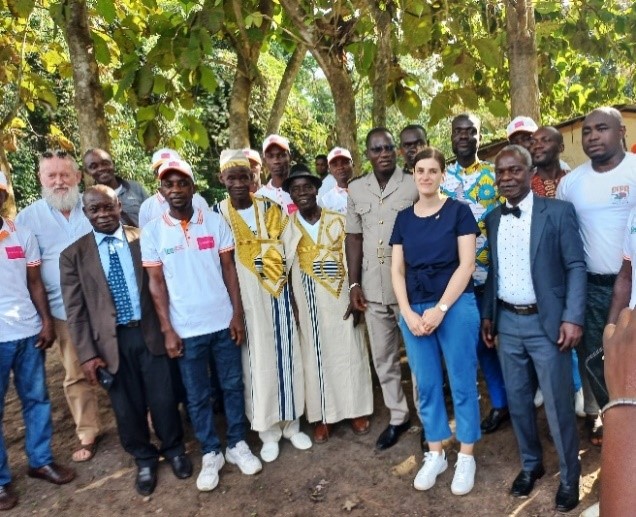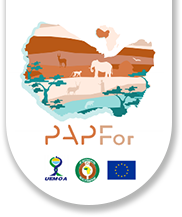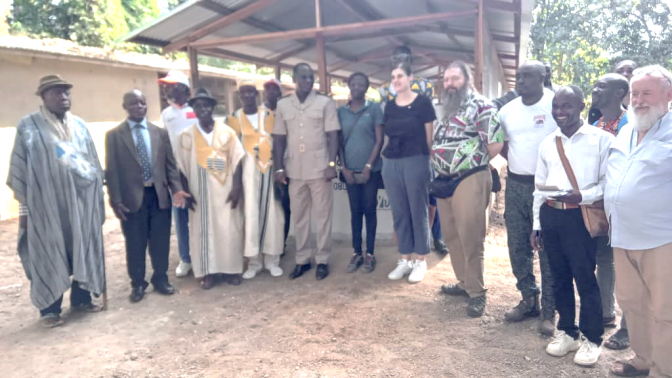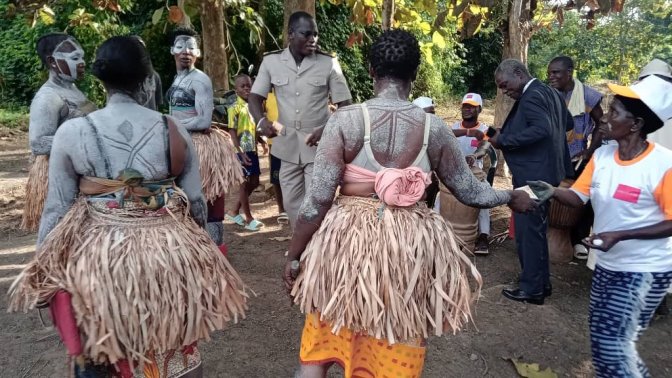Home / News / PAPFor supports income-generating activities in six communities around Taï (...)
PAPFor supports income-generating activities in six communities around Taï National Park
The EU-funded Programme for the Preservation of Forest Ecosystems in West Africa (PAPFor) project is improving the ecological connectivity of forests on the border of Cote d’Ivoire and Liberia by developing income-generating activities with forest-edged communities bordering the Taï National Park (TNP) in Cote d’Ivoire. The project is being implemented by the German Agency for International Cooperation (GIZ) in response to a socio-economic needs assessment undertaken in 6 communities around TNP.
The communities that took part in the livelihood programme were Kéibly and Zaïpobly in the sub-prefecture of Zagné; Daobly, Paulé-Oula and Sakré in the sub-prefecture of Taï; and Poutou in the sub-prefecture of Djouroutou. The PAPFor team congratulated the communities for curtailing illegal poaching, gold mining and felling trees in the park to conserve its remaining biodiversity.

As part of this support, a grant was awarded to a local NGO called Yacoli Village Ecole Ouverte (YVEO) to work with the communities to implement activities including the breeding of cane rats (‘agoutis’, also known as grasscutters) and achatina snails (giant African land snails) and setting up fish farms. The grant started in April 2023 and will end in March 2024.
The beneficiaries, including members of the Local Development Committees (LDC) management bodies, received training in modern breeding techniques for cane rat farming as well as in simplified accounting.
On 27 November 2023, keys were officially handed over for the livestock farms in Daobly in the presence of Stella Gaetani, Deputy Head of Cooperation at the German Embassy in Abidjan. In her speech, Gaetani explained emphasised the roles and responsibility of communities in protecting the park against unsustainable human activities. The beneficiary groups and local authorities from the Cavally Regional Council and Taï municipality also attended.
The project has created a healthy competition between the communities for efficient project management and better organisation. To ensure the success of the projects, the LDCs have set up a collective network to share and exchange information, knowledge and experiences. Also, a collective of Community Chiefs has been created for the effective monitoring of projects.



